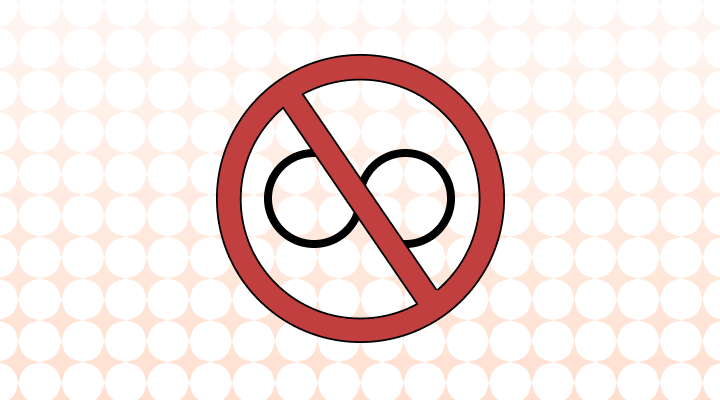"Finity" is an uncommon word that is the noun form of "finite," which means having limits or bounds. "Finity" refers to the state or quality of being finite, suggesting that something has a defined or limited nature.
An example of "finity"
For example, imagine a young boy have a jar filled with candies. The number of candies in the jar is finite because there is a definite, limited amount. The boy can count them, and once he has counted them all, he knows that he has a specific number of candies. In this case, the candies in the jar are finite because they have a clear endpoint, and there are only a certain number of candies in the jar—they are not infinite or limitless. The finity of the candies means there is a limited number of candies in the jar (although the boy may wish he had an infinite amount of candy).

Is "finity" in the dictionary?
The term "finity" is not an accepted word in some reputable dictionaries. The word can be found in dictionaries like Merriam-Webster and the Oxford English Dictionary but is not a valid entry in the Cambridge Dictionary. While "finity" is not a widely recognized or commonly used word, it can be understood as a concept related to limits, boundaries, or the finite nature of something in a particular context.
"Finity" vs. "finitude"
"Finitude" is another noun form of the adjective "finite" and is more widely accepted than "finity" in reputable dictionaries. The two noun forms "finity" and "finitude" have the same meaning and can be used interchangeably, yet "finitude" is much more commonly used than "finity" in modern times. Some writing software and online spell checkers may mark "finity" as a misspelling, so it may be safer to use the more commonly accepted "finitude" for formal academic writing lest your readers think you made a typo or misspelled a word.
How common is "finity" vs. "finitude"?
According to the Oxford English Dictionary, the earlier known use of the term "finity" was in the late 1600s in the writing of a philosopher named Richard Burthogge. Similarly, the earliest record of "finitude" being used according to the Oxford English Dictionary is in the mid-1600s, so "finity" and "finitude" came about in the same century.

As shown in the graph above, "finitude" is a much more common noun form of "finite" than "finity," although "finity" was more commonly used at one point in the past according to Google's database of published books.
Finity and infinity
The existence of the word "infinity" makes it reasonable to think that "finity" is also a commonly used word. "Infinity" is much more commonly used than both "finitude" and "finity" combined as shown in the graph below.

"Infinity" has been used extensively in published books throughout the times and is even part of a famous catchphrase from Disney's Toy Story in which the character Buzz Lightyear says, "To infinity and beyond!"
Example sentences
The following are example sentences that use the word "finity." The term can be replaced with "finitude" in each of these sentences because the two words are interchangeable. "Finitude" is easily the preferred noun form
- The concept of finity in mathematics deals with the limitations of numbers in a given set.
- The philosopher explored the idea of finity in relation to the human experience of time.
- In the realm of astrophysics, the universe's finity or infinity remains a topic of debate.
- The novel delves into the human quest for understanding the finity of existence.
- The artist's work often explores the boundaries between finity and infinity.
- Scientists ponder the finity of Earth's resources in the face of growing population demands.
- The lecture focused on the philosophical implications of finity and mortality.
- The mathematician's groundbreaking research challenged traditional notions of finity.
- The theologian contemplated the finity of human knowledge and the mysteries of faith.
- The discussion revolved around the concept of finity as a fundamental aspect of the universe.
Want to sound like a native speaker?
Engram’s AI-powered grammar checker makes your English sound like a native speaker’s, suggesting natural English expressions on top of fixing grammar, spelling, punctuation, word order, and vocabulary.

Reference:

















